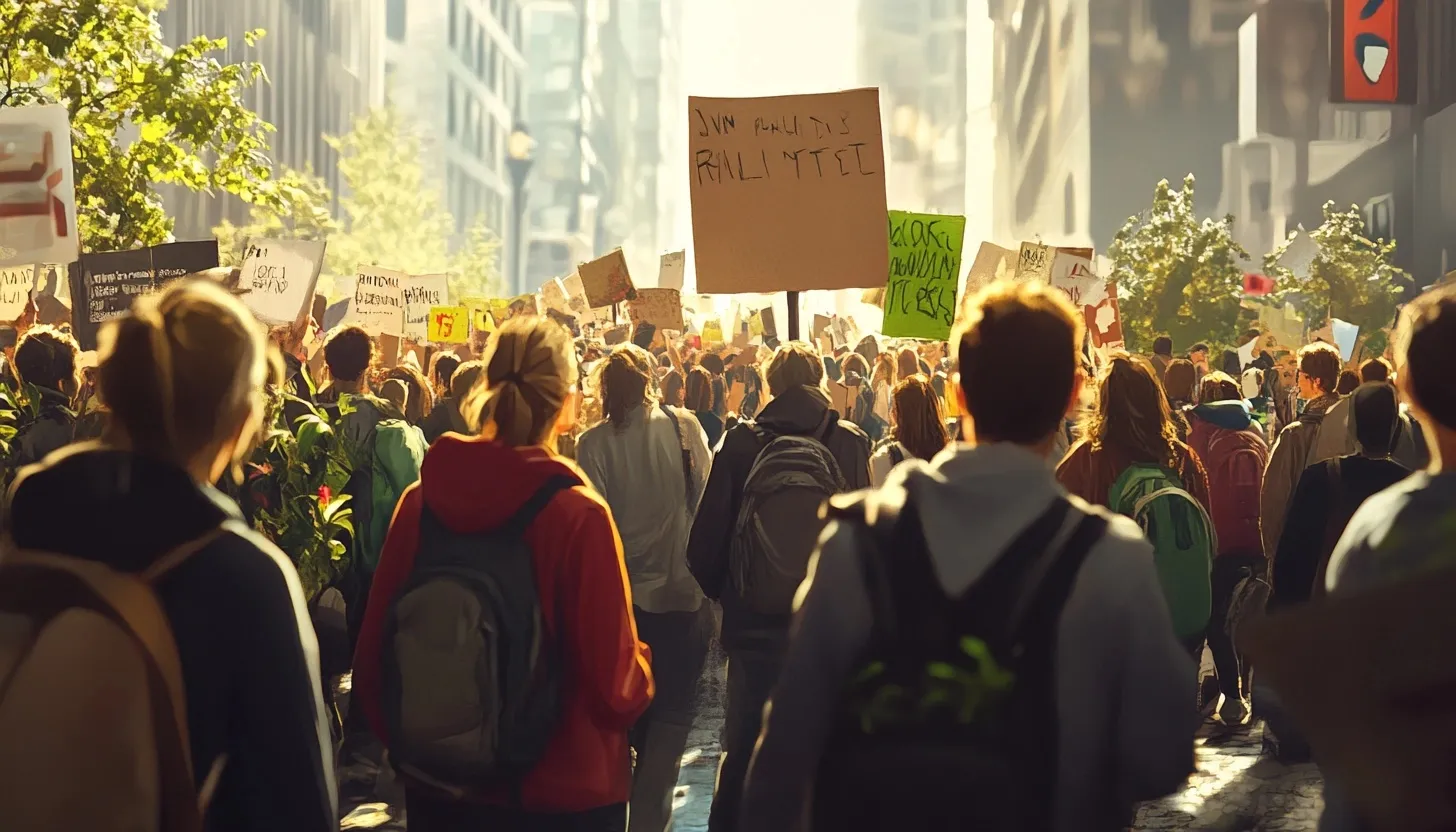


Books
Chapter 5 + 6 Reflections
History for Tomorrow by Roman Krznaric

Books
The Destructive Stories we keep telling ourselves
Ideas like the Rational Economic Self-Interested Man and Adam Smith’s ‘The Invisible Hand’ as necessary and productive mechanisms of a well functioning system seem both tempocentric and reductionist when we consider humanity through a wider lens of macrohistorical narratives . . and yet these ideas still underpin much of our thinking today as it relates to climate collapse and the possible futures adjacent.
Eleanor Ostrom’s Governing the Commons debunks this idea that humans’ driving force is inherently one of rational decision-making in the name of self-interest . . and Krznaric demonstrates this with examples like the Kurdish communal democracy model and Italian water council who develop a shared rationality that aligned individual interests with collective wellbeing. This idea of polycentric governance is an inspiring model for the future, this idea that we start local and work our way up . . the challenge as @Jeremy Levi Ervins points out, is that it’s a tough ask within the current economic systems - which is where I find the work of Indy Johar super inspiring. Johar advocates for reimaging the foundation structures which underpin our legal, social and financial structures. He talks a lot about ‘recoding the system’ to decouple our systems from these outdated assumptions which are rooted in individualism, competition and short-term gains . . arguing these are features of a system that we have designed, and thus are free to redesign if we choose. His ideas centre around ‘decoding the system’ to understand the implicit rules, incentives and power dynamics so that we can explicitly interrogate how these legal frameworks, economic models and governance structures shape our behaviours and thus available outcomes and possible futures. This resonates with Nancy Fraser’s theory of social justice and the need to acknowledge, interrogate and reimagine all the interconnecting systems.
Recoding / Decoding the System
Johar really emphasizes the idea of shifting from ownership models to stewardship models, where we manage resources not as exclusive property but as assets held in trust for the community and future generations. This aligns very much with Ostrom's findings on collective management and challenges the primacy of private property (and economic) rights inherent in the rational self-interested model. Both Eleanor Ostrom and more recently Indy Johar, recognise human as social beings capable of both cooperation and collective rationality. As Krznaric points out in his writing, this paradigm shift is critical if we are to move impactfully toward more sustainable and equitable management of resources.
Transformative Agency through Education
In Krznaric’s ‘Reviving of Democracy’ he advocates that another kind of communal democracy is possible and that history tells us that collective political organising has functioned well during periods in the past, which is heartening. Another lens I’ve been thinking about as we head into the US elections and there’s a lot of chatter about ‘Threat to democracy’ etc from the Democrats . . (linking in to our discussions last week about myths and narratives which shape our collective beliefs) is that our collective ideas about democracy are probably as wrong as they are right. There may have been other kinds of functioning democracy as Krznaric points out; but again back to my feminist deconstruction of the system oppression of women and marginalised cultures from last week . . . has history shown our democracy to be a fair, equitable and representative collective system for all - at any point in history? Maybe Krznaric’s example suggests this, but the current system we have (as we saw last week), is historically founded on systemic mechanisms of exclusion and oppression even when history would suggest it was functioning well. If as Socrates says “Democracy is only as good as the education that surrounds it” perhaps our problem lies in the underestimating (and undervaluing) of the importance of transformative agency through education if we are to make the meaningful paradigm shift that people like Krznaric, Ostrom and Johar suggest we might be capable of.
The Destructive Stories we keep telling ourselves
Ideas like the Rational Economic Self-Interested Man and Adam Smith’s ‘The Invisible Hand’ as necessary and productive mechanisms of a well functioning system seem both tempocentric and reductionist when we consider humanity through a wider lens of macrohistorical narratives . . and yet these ideas still underpin much of our thinking today as it relates to climate collapse and the possible futures adjacent.
Eleanor Ostrom’s Governing the Commons debunks this idea that humans’ driving force is inherently one of rational decision-making in the name of self-interest . . and Krznaric demonstrates this with examples like the Kurdish communal democracy model and Italian water council who develop a shared rationality that aligned individual interests with collective wellbeing. This idea of polycentric governance is an inspiring model for the future, this idea that we start local and work our way up . . the challenge as @Jeremy Levi Ervins points out, is that it’s a tough ask within the current economic systems - which is where I find the work of Indy Johar super inspiring. Johar advocates for reimaging the foundation structures which underpin our legal, social and financial structures. He talks a lot about ‘recoding the system’ to decouple our systems from these outdated assumptions which are rooted in individualism, competition and short-term gains . . arguing these are features of a system that we have designed, and thus are free to redesign if we choose. His ideas centre around ‘decoding the system’ to understand the implicit rules, incentives and power dynamics so that we can explicitly interrogate how these legal frameworks, economic models and governance structures shape our behaviours and thus available outcomes and possible futures. This resonates with Nancy Fraser’s theory of social justice and the need to acknowledge, interrogate and reimagine all the interconnecting systems.
Recoding / Decoding the System
Johar really emphasizes the idea of shifting from ownership models to stewardship models, where we manage resources not as exclusive property but as assets held in trust for the community and future generations. This aligns very much with Ostrom's findings on collective management and challenges the primacy of private property (and economic) rights inherent in the rational self-interested model. Both Eleanor Ostrom and more recently Indy Johar, recognise human as social beings capable of both cooperation and collective rationality. As Krznaric points out in his writing, this paradigm shift is critical if we are to move impactfully toward more sustainable and equitable management of resources.
Transformative Agency through Education
In Krznaric’s ‘Reviving of Democracy’ he advocates that another kind of communal democracy is possible and that history tells us that collective political organising has functioned well during periods in the past, which is heartening. Another lens I’ve been thinking about as we head into the US elections and there’s a lot of chatter about ‘Threat to democracy’ etc from the Democrats . . (linking in to our discussions last week about myths and narratives which shape our collective beliefs) is that our collective ideas about democracy are probably as wrong as they are right. There may have been other kinds of functioning democracy as Krznaric points out; but again back to my feminist deconstruction of the system oppression of women and marginalised cultures from last week . . . has history shown our democracy to be a fair, equitable and representative collective system for all - at any point in history? Maybe Krznaric’s example suggests this, but the current system we have (as we saw last week), is historically founded on systemic mechanisms of exclusion and oppression even when history would suggest it was functioning well. If as Socrates says “Democracy is only as good as the education that surrounds it” perhaps our problem lies in the underestimating (and undervaluing) of the importance of transformative agency through education if we are to make the meaningful paradigm shift that people like Krznaric, Ostrom and Johar suggest we might be capable of.
The Destructive Stories we keep telling ourselves
Ideas like the Rational Economic Self-Interested Man and Adam Smith’s ‘The Invisible Hand’ as necessary and productive mechanisms of a well functioning system seem both tempocentric and reductionist when we consider humanity through a wider lens of macrohistorical narratives . . and yet these ideas still underpin much of our thinking today as it relates to climate collapse and the possible futures adjacent.
Eleanor Ostrom’s Governing the Commons debunks this idea that humans’ driving force is inherently one of rational decision-making in the name of self-interest . . and Krznaric demonstrates this with examples like the Kurdish communal democracy model and Italian water council who develop a shared rationality that aligned individual interests with collective wellbeing. This idea of polycentric governance is an inspiring model for the future, this idea that we start local and work our way up . . the challenge as @Jeremy Levi Ervins points out, is that it’s a tough ask within the current economic systems - which is where I find the work of Indy Johar super inspiring. Johar advocates for reimaging the foundation structures which underpin our legal, social and financial structures. He talks a lot about ‘recoding the system’ to decouple our systems from these outdated assumptions which are rooted in individualism, competition and short-term gains . . arguing these are features of a system that we have designed, and thus are free to redesign if we choose. His ideas centre around ‘decoding the system’ to understand the implicit rules, incentives and power dynamics so that we can explicitly interrogate how these legal frameworks, economic models and governance structures shape our behaviours and thus available outcomes and possible futures. This resonates with Nancy Fraser’s theory of social justice and the need to acknowledge, interrogate and reimagine all the interconnecting systems.
Recoding / Decoding the System
Johar really emphasizes the idea of shifting from ownership models to stewardship models, where we manage resources not as exclusive property but as assets held in trust for the community and future generations. This aligns very much with Ostrom's findings on collective management and challenges the primacy of private property (and economic) rights inherent in the rational self-interested model. Both Eleanor Ostrom and more recently Indy Johar, recognise human as social beings capable of both cooperation and collective rationality. As Krznaric points out in his writing, this paradigm shift is critical if we are to move impactfully toward more sustainable and equitable management of resources.
Transformative Agency through Education
In Krznaric’s ‘Reviving of Democracy’ he advocates that another kind of communal democracy is possible and that history tells us that collective political organising has functioned well during periods in the past, which is heartening. Another lens I’ve been thinking about as we head into the US elections and there’s a lot of chatter about ‘Threat to democracy’ etc from the Democrats . . (linking in to our discussions last week about myths and narratives which shape our collective beliefs) is that our collective ideas about democracy are probably as wrong as they are right. There may have been other kinds of functioning democracy as Krznaric points out; but again back to my feminist deconstruction of the system oppression of women and marginalised cultures from last week . . . has history shown our democracy to be a fair, equitable and representative collective system for all - at any point in history? Maybe Krznaric’s example suggests this, but the current system we have (as we saw last week), is historically founded on systemic mechanisms of exclusion and oppression even when history would suggest it was functioning well. If as Socrates says “Democracy is only as good as the education that surrounds it” perhaps our problem lies in the underestimating (and undervaluing) of the importance of transformative agency through education if we are to make the meaningful paradigm shift that people like Krznaric, Ostrom and Johar suggest we might be capable of.
The Destructive Stories we keep telling ourselves
Ideas like the Rational Economic Self-Interested Man and Adam Smith’s ‘The Invisible Hand’ as necessary and productive mechanisms of a well functioning system seem both tempocentric and reductionist when we consider humanity through a wider lens of macrohistorical narratives . . and yet these ideas still underpin much of our thinking today as it relates to climate collapse and the possible futures adjacent.
Eleanor Ostrom’s Governing the Commons debunks this idea that humans’ driving force is inherently one of rational decision-making in the name of self-interest . . and Krznaric demonstrates this with examples like the Kurdish communal democracy model and Italian water council who develop a shared rationality that aligned individual interests with collective wellbeing. This idea of polycentric governance is an inspiring model for the future, this idea that we start local and work our way up . . the challenge as @Jeremy Levi Ervins points out, is that it’s a tough ask within the current economic systems - which is where I find the work of Indy Johar super inspiring. Johar advocates for reimaging the foundation structures which underpin our legal, social and financial structures. He talks a lot about ‘recoding the system’ to decouple our systems from these outdated assumptions which are rooted in individualism, competition and short-term gains . . arguing these are features of a system that we have designed, and thus are free to redesign if we choose. His ideas centre around ‘decoding the system’ to understand the implicit rules, incentives and power dynamics so that we can explicitly interrogate how these legal frameworks, economic models and governance structures shape our behaviours and thus available outcomes and possible futures. This resonates with Nancy Fraser’s theory of social justice and the need to acknowledge, interrogate and reimagine all the interconnecting systems.
Recoding / Decoding the System
Johar really emphasizes the idea of shifting from ownership models to stewardship models, where we manage resources not as exclusive property but as assets held in trust for the community and future generations. This aligns very much with Ostrom's findings on collective management and challenges the primacy of private property (and economic) rights inherent in the rational self-interested model. Both Eleanor Ostrom and more recently Indy Johar, recognise human as social beings capable of both cooperation and collective rationality. As Krznaric points out in his writing, this paradigm shift is critical if we are to move impactfully toward more sustainable and equitable management of resources.
Transformative Agency through Education
In Krznaric’s ‘Reviving of Democracy’ he advocates that another kind of communal democracy is possible and that history tells us that collective political organising has functioned well during periods in the past, which is heartening. Another lens I’ve been thinking about as we head into the US elections and there’s a lot of chatter about ‘Threat to democracy’ etc from the Democrats . . (linking in to our discussions last week about myths and narratives which shape our collective beliefs) is that our collective ideas about democracy are probably as wrong as they are right. There may have been other kinds of functioning democracy as Krznaric points out; but again back to my feminist deconstruction of the system oppression of women and marginalised cultures from last week . . . has history shown our democracy to be a fair, equitable and representative collective system for all - at any point in history? Maybe Krznaric’s example suggests this, but the current system we have (as we saw last week), is historically founded on systemic mechanisms of exclusion and oppression even when history would suggest it was functioning well. If as Socrates says “Democracy is only as good as the education that surrounds it” perhaps our problem lies in the underestimating (and undervaluing) of the importance of transformative agency through education if we are to make the meaningful paradigm shift that people like Krznaric, Ostrom and Johar suggest we might be capable of.
The Destructive Stories we keep telling ourselves
Ideas like the Rational Economic Self-Interested Man and Adam Smith’s ‘The Invisible Hand’ as necessary and productive mechanisms of a well functioning system seem both tempocentric and reductionist when we consider humanity through a wider lens of macrohistorical narratives . . and yet these ideas still underpin much of our thinking today as it relates to climate collapse and the possible futures adjacent.
Eleanor Ostrom’s Governing the Commons debunks this idea that humans’ driving force is inherently one of rational decision-making in the name of self-interest . . and Krznaric demonstrates this with examples like the Kurdish communal democracy model and Italian water council who develop a shared rationality that aligned individual interests with collective wellbeing. This idea of polycentric governance is an inspiring model for the future, this idea that we start local and work our way up . . the challenge as @Jeremy Levi Ervins points out, is that it’s a tough ask within the current economic systems - which is where I find the work of Indy Johar super inspiring. Johar advocates for reimaging the foundation structures which underpin our legal, social and financial structures. He talks a lot about ‘recoding the system’ to decouple our systems from these outdated assumptions which are rooted in individualism, competition and short-term gains . . arguing these are features of a system that we have designed, and thus are free to redesign if we choose. His ideas centre around ‘decoding the system’ to understand the implicit rules, incentives and power dynamics so that we can explicitly interrogate how these legal frameworks, economic models and governance structures shape our behaviours and thus available outcomes and possible futures. This resonates with Nancy Fraser’s theory of social justice and the need to acknowledge, interrogate and reimagine all the interconnecting systems.
Recoding / Decoding the System
Johar really emphasizes the idea of shifting from ownership models to stewardship models, where we manage resources not as exclusive property but as assets held in trust for the community and future generations. This aligns very much with Ostrom's findings on collective management and challenges the primacy of private property (and economic) rights inherent in the rational self-interested model. Both Eleanor Ostrom and more recently Indy Johar, recognise human as social beings capable of both cooperation and collective rationality. As Krznaric points out in his writing, this paradigm shift is critical if we are to move impactfully toward more sustainable and equitable management of resources.
Transformative Agency through Education
In Krznaric’s ‘Reviving of Democracy’ he advocates that another kind of communal democracy is possible and that history tells us that collective political organising has functioned well during periods in the past, which is heartening. Another lens I’ve been thinking about as we head into the US elections and there’s a lot of chatter about ‘Threat to democracy’ etc from the Democrats . . (linking in to our discussions last week about myths and narratives which shape our collective beliefs) is that our collective ideas about democracy are probably as wrong as they are right. There may have been other kinds of functioning democracy as Krznaric points out; but again back to my feminist deconstruction of the system oppression of women and marginalised cultures from last week . . . has history shown our democracy to be a fair, equitable and representative collective system for all - at any point in history? Maybe Krznaric’s example suggests this, but the current system we have (as we saw last week), is historically founded on systemic mechanisms of exclusion and oppression even when history would suggest it was functioning well. If as Socrates says “Democracy is only as good as the education that surrounds it” perhaps our problem lies in the underestimating (and undervaluing) of the importance of transformative agency through education if we are to make the meaningful paradigm shift that people like Krznaric, Ostrom and Johar suggest we might be capable of.
Other Blog Posts
Research
March 5, 24
How will declining birthrates and ageing populations shape our potential futures?
Research
May 2, 2019
Contemplating the right question is often more important than crafting the right answer.
Education
May 1, 2020
As a school student, how might you think about Earlywork as an opportunity to showcase who you are and what you’re capable of?
Story
March 6, 2023
A Science Fiction Prototyping approach to imagining our future oceans.
Research
June 5, 2023
Inputting research and information as networked knowledge nodes with supertags surfaces connections and patterns you might not otherwise pick up.
Design
September 10, 2023
Is AI Stripping Creativity from Architecture? The Dangers of Algorithm-Driven Design
Education
September 24, 2023
What if . . we framed education as an example of chaos theory?
Education
October 17, 2023
Will school education will eventually reform as an emergent system with technology embedded as a key shaping force?
Education
April 18, 2024
What if . . instead of the failures of students, we focused on the failure of systems?. . and used that understanding to collectively reimagine education?
Research
August 20, 2024
UX (User eXperience) is in some ways, a philosophical enquiry, inviting us to question - What is this really about? What is the role of design in this moment?
Books
September 19, 2024
If we disallow radical flank activism does the right to protest mean anything at all?
Think
September 21, 2024
Thinking about Foucault in the context of women worldwide and reproductive justice
Books
November 13, 2024
When we think about development, can the concept of 'equity' be reconceptualised to connect with the context of the Global South without recovering / making visible, plural definitions of 'prosperity' or 'wellbeing'?
👋 say hello


















